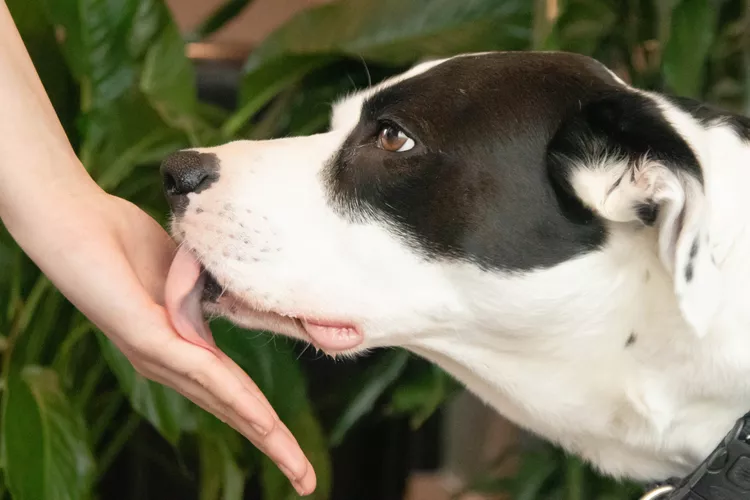
Yes, dogs will lick you to show their affection—giving you kisses—but there are several other reasons you could end up with a slobbery face or hand. By licking you, your dog might be looking for attention, following their wild instincts, or just figuring out how you taste.
It's a common, relatively harmless behavior most dog owners accept as a sign of canine love, but in rare cases the licking can indicate your dog is suffering mentally. Learn more about why dogs lick—and what you can do if you want it to stop.
While we don't know for certain why dogs lick, most experts agree there's probably a combination of reasons. In most cases, licking is not considered a serious behavior problem unless it bothers you. Knowing the reason for your dog's licking, however, might change the way you feel about it.
There's a good chance your dog is licking you to show their affection. It's why many people equate them with kisses. Licking is a natural action for dogs. They learned it from the grooming and affection their mothers gave them as puppies. Dogs might lick your face if they can get to it. If not, they might just go for any available patch of skin: hands, arms, legs, feet, and even ears.
Some dogs tend to lick less than others. This does not necessarily mean a dog is less affectionate. They might have just learned things differently as a puppy or they simply don't prefer licking.
Dogs will also lick you to simply get your attention. It often starts as a sign of affection, but then it's reinforced by a person's reaction: laughing, smiling, or petting.
Maybe your dog is bored or lonely. There you are and they want your attention. When a dog is seeking attention, they will feel rewarded by any kind of attention, even the negative type. Pushing them away, saying "no," or even administering punishment still means you're not ignoring the licking. This can encourage the licking even further.
Dogs may also lick you because they're following their wild instincts. When wolves (and sometimes dogs in the wild) return to their pups after a meal, the pups lick around the adults' mouths. The wolves then regurgitate meat from the hunt for the pups to chow down. Some believe this licking behavior has been passed down in wolves' DNA, causing dogs to instinctively do it sometimes.
Another reason dogs lick you: They want to see how you taste. Once that dog gets to licking you, they might realize you have an intriguing salty, flavor. Dogs love anything that has an interesting taste. Plus, licking is a way for your dog to explore their world. You're part of that world after all.
There are rare cases when your dog licking you can indicate a problem. Know the signs so you can help your pup feel better.
Although it's rare, dogs can lick because they suffer from obsessive-compulsive disorder, often brought on by prolonged stress and anxiety. Licking that occurs constantly (and usually involves the licking of objects, surfaces, and themselves in addition to humans) may be a real problem.
Talk to your veterinarian if you think your dog's licking is concerning. They might refer you to an animal behaviorist for help.
Your veterinarian or a veterinary behaviorist may also prescribe medication to help relieve anxiety. Remember, animals cannot learn while in a high state of anxiety. So medication may be used as a tool to curb licking in conjunction with training. Pharmaceutical treatment may even be used temporarily while your dog goes through training and behavior modification.
Yes, it's usually relatively harmless to let your dog lick you. However, don't believe the old myth that dogs' mouths are cleaner than humans' mouths. Dogs' mouths contain a lot of natural bacteria, which is part of the reason dog bites are so dangerous. However, this bacteria probably won't cause harm unless it gets into an open wound.
Getting your dog to stop licking you (and others) is usually a matter of denying attention when they do it. When unwanted licking starts:
In time, your dog will usually get the point: Licking is undesired behavior.
You can also be proactive, preventing your dog from licking you by distracting them. So instead of giving them the chance to lick, you go straight to:
Speaking of new tricks, if you really don't mind the occasional canine kiss, you can always teach your pup how to give you some sugar.
We'll never know for sure, but licking accompanied with other excited behavior can mean your dog loves you. Or, perhaps, they love how you taste.
That's up to you. Just remember that dogs' mouths contain hundreds of bacterial species, so it can be icky. Dog licks probably won't make you sick, but don't let them lick any open wounds. (And keep up with regular vet appointments and teeth cleanings.)
Keep your dog from licking others by distracting them. If you have people coming over, give your dog a food puzzle or enrichment toy to play with as your guests arrive. If it's a big enough problem, keep your dog separated from your guests in another room or outside.
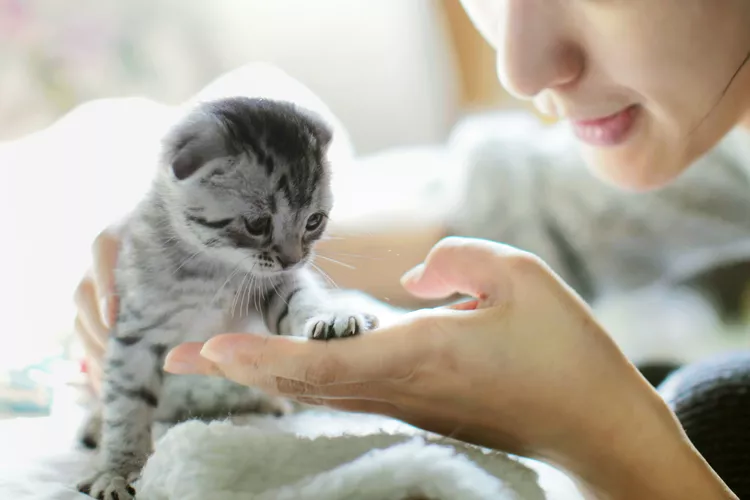
The First 30 Days With Your New Kitten
The first month is full of changes and excitement for a kitten in a new home. Find out what to expect and what you can do for your new feline friend.
How Old Is Your Cat in Human Years?
As a cat ages, there are often behavioral and physical changes too. Find out how to convert cat years to human years and what to expect at each stage.
What to Buy for Your New Cat: A List of Essentials
Before you bring your new cat or kitten home, there are a number of things to collect or buy so your cat will feel welcomed like a family member.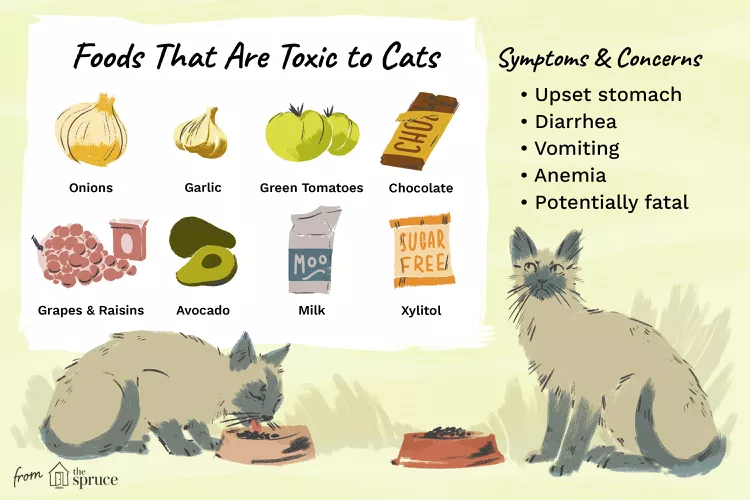
Human Foods That Are Poisonous to Cats
Many human foods are toxic to cats. Avoid feeding cats table scraps. Instead, feed a nutritious cat food created for their specific nutritional needs.
Cat Food Ingredients to Avoid
When checking the nutrition content of cat food, look for ingredients that are not healthy or show it is of poor quality. Avoid these 3 ingredients.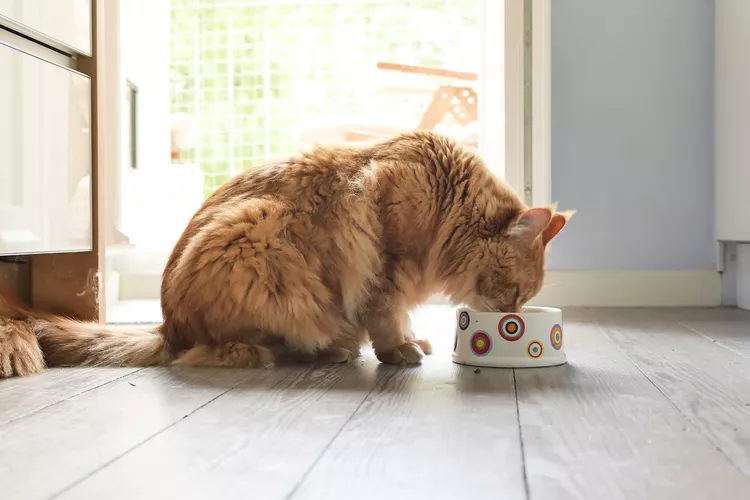
Should You Feed Your Cat a Raw Diet?
Learn the pros and cons of raw diets for cats, and find out how to choose a raw food diet for your own cat.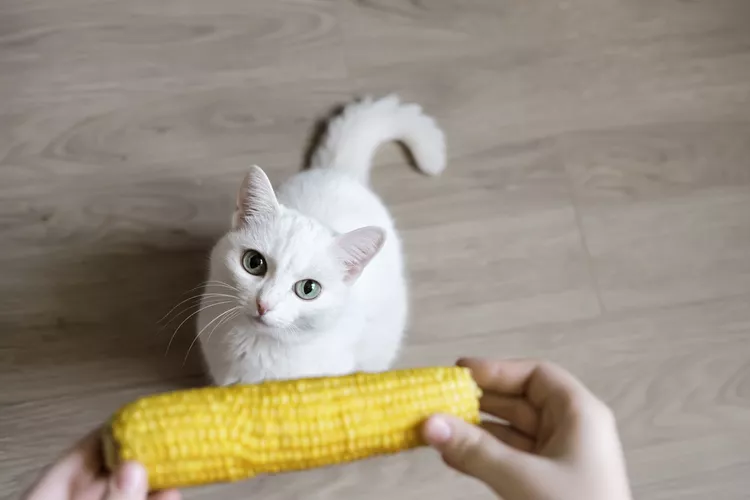
Can Cats Eat Corn? Here's What A Vet Thinks
Corn is a common ingredient in cat food and can be a safe treat for cats when fed in moderation. Find out more about how to safely feed corn to your cat.
10 Obscure, Little-known Canine Facts in Honor of National Dog Day
With National Dog Day upon us, it's time to celebrate everything about our favorite pets—even the weirder stuff. Here are 10 obscure facts about dogs you probably didn't know.
The Different Types of Pet-Friendly Workplaces
Discover the different types of pet-friendly workplaces and the benefits they offer employees. Learn how to create a pet-friendly workplace and the best practices for pet owners.
Exploring the Different Types of Pet-Friendly Beaches
Are you looking for pet-friendly beaches? Learn about the different types of pet-friendly beaches, their locations, and tips for visiting them with your pet.
Why Is My Dog Lethargic?
Lethargy can be a sign that something is wrong with your dog. Find out what may be causing this lack of energy and what you should do about it.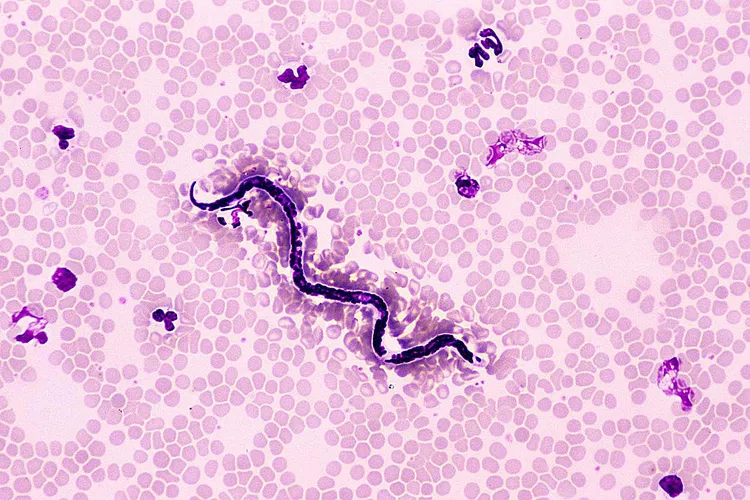
Medications to Prevent Heartworm Disease for Dogs
Heartworm disease is a serious risk for all dogs exposed to mosquitos. Find out about the products used to prevent Heartworm disease in dogs.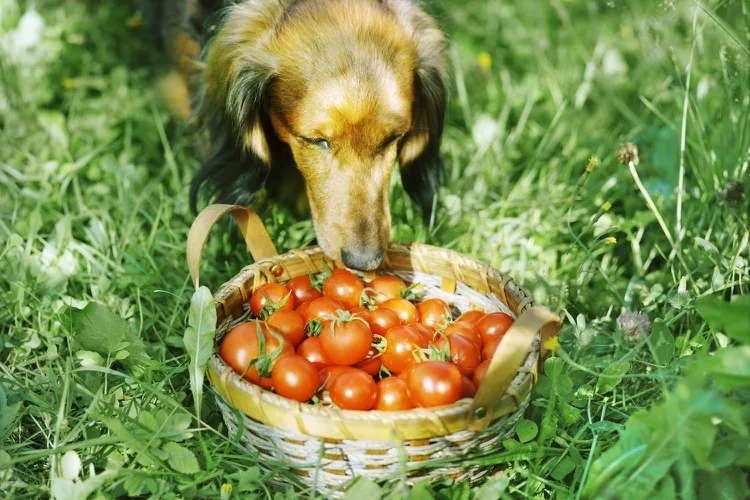
Can My Dog Eat Tomatoes?
You'll want to keep Fido out of your garden since the tomato plant is toxic, but you can safely offer him ripe tomatoes as a nutrient-packed treat.
15 Best American Cat Breeds
Several cat breeds, including the American shorthair and Bengal, have their origins in the United States. Learn more about these American cat breeds.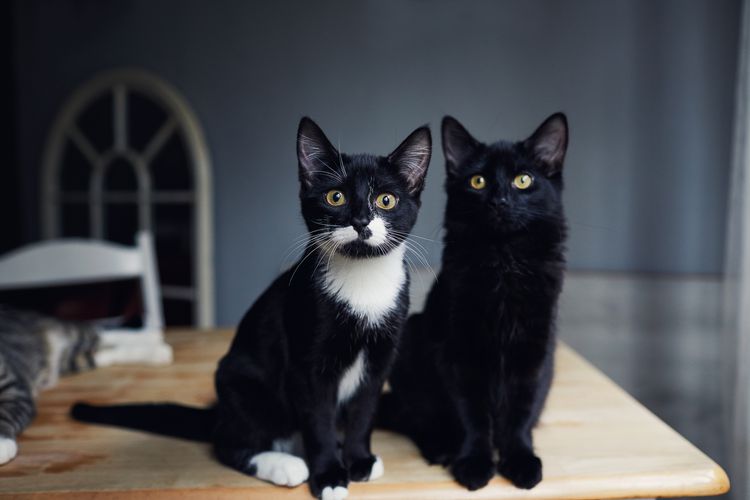
Why Do Cats Slap Each Other?
Cats can have some quirky behaviors—one of them being slapping each other. Why do they do this and what can you do to stop it?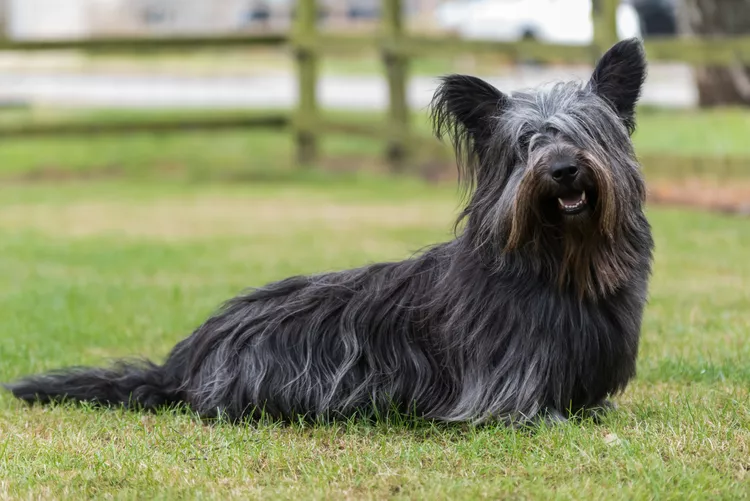
Skye Terrier: Dog Breed Characteristics & Care
Learn all about the Skye Terrier, an elegant breed known for its friendly and even-tempered personality with classic terrier traits.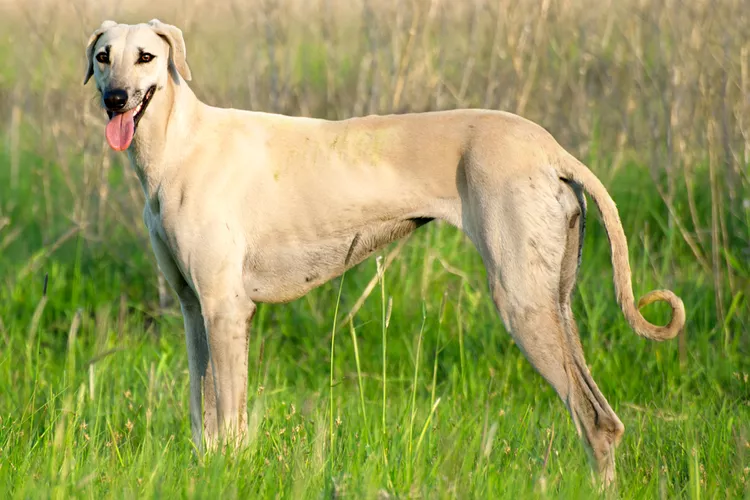
Sloughi: Dog Breed Characteristics & Care
Learn all about the Sloughi, an ancient dog breed known for its impressive running ability, slim stature, and affection toward its family.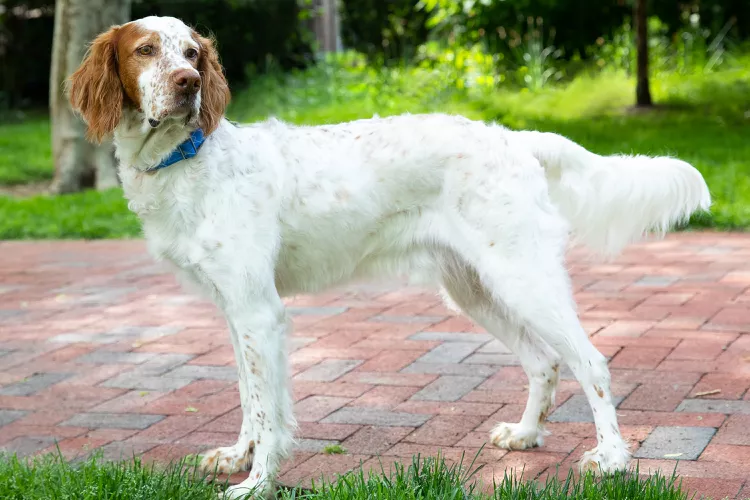
English Setter: Dog Breed Characteristics & Care
Learn about the English setter, an excellent hunting breed for pointing and retrieving game. It's also a popular and affectionate companion dog.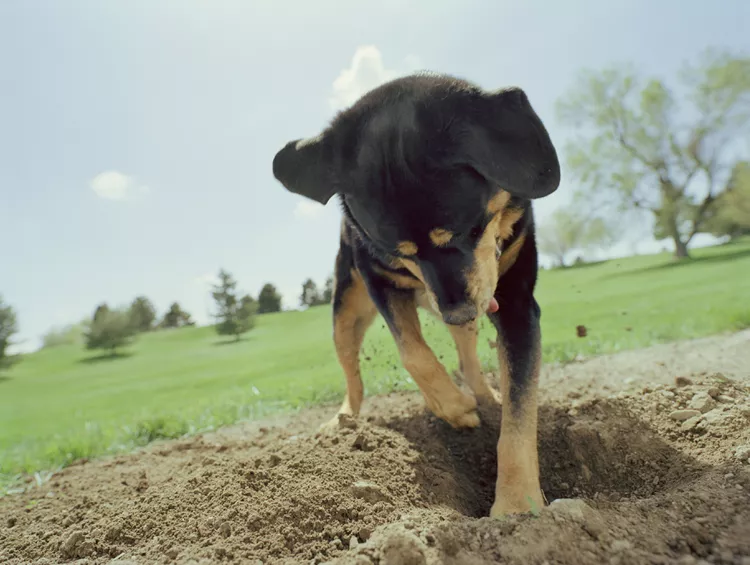
Why Dogs Bury Bones and Other Objects
If you give a dog a bone, he might bury it. Why is that? Learn about this burying behavior in dogs and what it means for your pet.
Reasons Why Dogs Run Away and How to Stop It
Dogs can escape, especially if they’re bored and not properly contained. Here are some techniques for stopping your dog from running away.